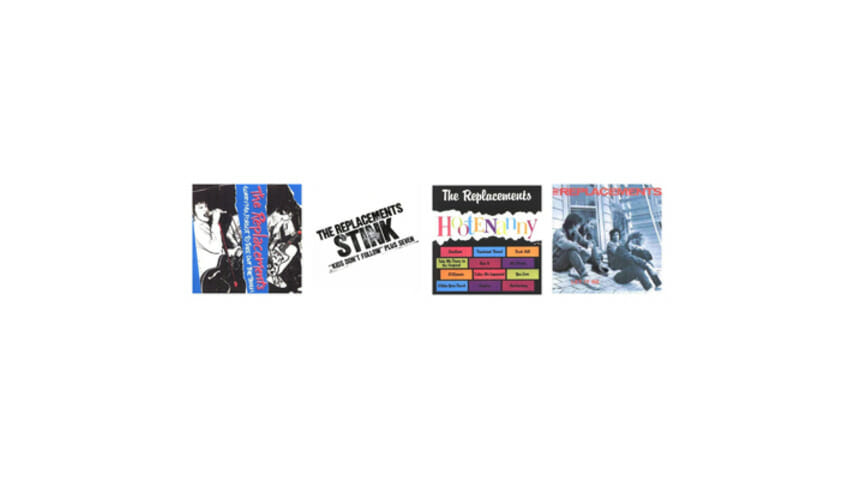The Replacements: Replacements Twin-Tone Reissues

Sorry Ma, Forgot To Take Out The Trash (Deluxe)
Stink (Deluxe)
Hootenanny (Deluxe)
Let It Be (Deluxe) [Masterpiece]
Rock’s lovable losers show us how to succeed and fail courageously
As if to fulfill some ancient musical prophecy, The Replacements were delivered in a weird twist on the virgin birth: shot naked, motherless and screaming from the defiantly extended middle finger of Johnny Cash and straight into this world, charged with the high-holy task of unconsciously saving rock ’n’ roll from itself and all its bloated high-art pretension.
Of course, they didn’t seem like heroes at first. They were just a bunch of regular-looking drunks from Minneapolis—not perfectly coiffed stadium-rock virtuosos or fashion-obsessed art rockers from some preordained center of cool like L.A. or New York. They were everyday fellas who, together, beat the odds every so often, reaching greatness far beyond their means: underachievers overachieving, real people (who could’ve been me or you or anyone else if we’d had the guts); a band surviving on momentum, spilled beer and underdog charm.
It’s all in the “Bastards of Young” video. During a decade of flashy images, mega pop stars and New Wave self-consciousness, how did The Replacements choose to visually accompany one of the greatest disaffected-youth anthems ever written? Four black-and-white minutes with a camera trained on a throbbing speaker cone. Occasionally, some guy walks across the screen. At the end, he gets up, kicks the shit out of the speaker and walks out, slamming the door behind him.
-

-

-

-

-

-

-

-

-

-

-

-

-

-

-

-

-

-

-

-

-

-

-

-

-

-

-

-

-

-

-

-

-

-

-

-

-

-

-

-








































